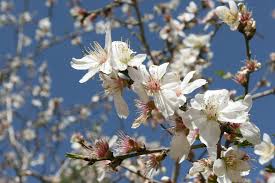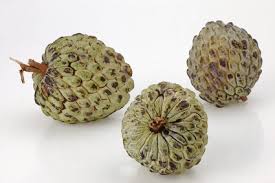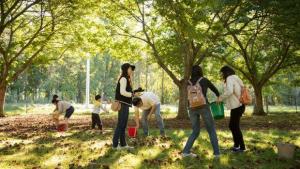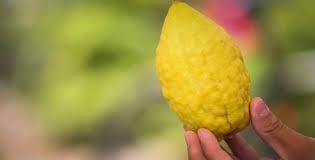TuBishvatis here and can be felt in the air.
I don't mean this specific time during February, which feels a little empty – becausethe Tishrei holidays have passed and we've finished putting away the mess they left behind, and we look through the calendar to see when the next vacation is from school. I also don't mean that the sugfganiyot are done and gone, yet the Hamantaschen are starting to appear, as are the dried fruits. I mean the almond trees, the shkediya, of course. Their full blossom slowly filling the landscape on the sides of the roads.
It is amazing how wonderful this process seems to me each year:beginning with whitish-pinkish blotches that can be seen briefly as you drive through the hills and when hiking in nature; Then more appear like happy clouds and the variety of shades expands – more pink, more white. And then, at the peak of the concert, the eye can no longer ignore this glamor, which is on every corner and behind every bend, and with every breeze flooding the air with more fragrant petals that look like a wonderful local scene of Sakura and also a bit like a light breeze of snowflakes, which the Jerusalemites long for every year, but this petal gust is equally pleasing to us.
But I don’t intend to write too much about almonds and almond trees this time – I'm excited and waiting for that for next week. This time I thought about how TuBishvat is a good example of a good idea drawn from hidden wisdom, which has become a customand has turned into a rule of thumb – which is now draining more and more out of content. I’m talking about the custom of eating dried fruits during TuBishvat. If we examine the root of the custom we will easily find that it stems from the desire to eat fruits from the Promised Land, while we were in the Diaspora, where fresh produce from Israel was not available in the times before this era of quick-shipments, online ordering and exporting by air. Yes, it is hard to imagine an age when people ate mainly what was grown around themwhen ripe (and without pesticides), but rumor has it that it was so.
If so, the custom began with the simple and understandable notion that it would be proper and appropriate to eat fruits of the Promised Land on the day of the New Year for the trees (which is actually the time when the Jewish year of tithes ends). It is a good idea to consider man as a tree, to think of this day as a happy day for trees as well as for mankind–who enjoy the fruit and appreciate this wonderful process, in which the fruits grow andbecome juicy and delicious, and please us when they are ripe and ready and we acknowledge the effort we have made to help them grow. In general, we pause for a moment to acknowledge the abundance embodied in our produce, and in the course of lifeand nature that surrounds us. Some of the holiday customs also included eating a wide variety of fruits, and especially fruits in the beginning of their season – and say the Shehecheyanu blessing. What a beautiful custom it is to stop for a moment, and appreciate what we have, and the blessing embodied in every fruit, which has ripened and harvested when ready.
Since then, somehow, the holiday customs have been reduced and lessened to eating dried fruits, as if it were the essence of the holiday itself. A simple and fairly empty rule of thumb:TuB'Shvat, eat dried fruits. Even if they were not from Israel. Even if they are not a new fruit in season, and rather than eating local and organic produce – it comes from the other side of the world, sprayed with chemicals.
It’s a shame, really. The abstraction of a nice idea into a simple rule of thumb, as is happens also with other subjects, some of which are related to food too. Like summarizing a healthy diet into one rule of thumb, such as “eat only low fatand with no added sugar”. As if our bodies don’t need good fats in order to build itself, and as if the essence of food is to be sugar-free.
Wishing us all to remember the essence, and not the rule of thumb.
Yours,
Maggie's Garden Team
Forecast:
In the ORGANIC vegetable baskets we expect (draft only):
Cucumber
Tomato
Lettuce
Potato
Cauliflower
Eggplant
Parsley
Leak
Celery
The Large organic vegetable baskets also include:
Onion
Coriander
Cabbage
In the ORGANIC fruit baskets:
Bannana
Orange
Pomelo
The large ORGANIC fruit baskets also include:
Red Pomelo
Clementine
The ORGANIC Green Basket:
Celery
Spinach
A kind of lettuce
Mint
Sprouts
Swiss Chard
Kale
Argula












